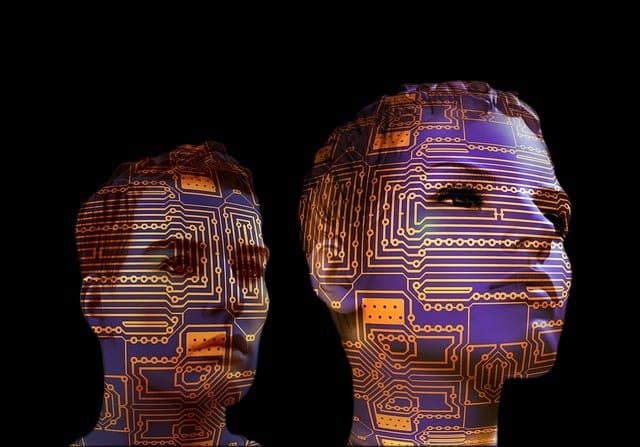Artificial Intelligence (AI) is not just a buzzword; it's a transformative force reshaping industries and societies at a breakneck speed. As we edge closer to 2025, the fate of artificial intelligence is a topic of intense speculation and interest. This article delves into the future of AI, exploring its potential impacts, challenges, and the innovations that lie ahead.
Key Takeaways:
- AI's Impact on Jobs and Productivity: AI is expected to create new jobs while transforming existing ones, enhancing productivity across various sectors.
- Security and Ethical Concerns: As AI tools become more sophisticated, addressing security and ethical concerns will be paramount.
- The Role of AI in Business and Innovation: AI will continue to drive innovation, with a growing number of companies leveraging AI to gain a competitive edge.
The Rise of Generative AI
Generative AI, a subset of artificial intelligence, has been making waves with its ability to create content, from text to images, that mimics human creativity. This technology is not just a novelty; it's a powerful tool that businesses are leveraging to enhance creativity and efficiency. For instance, companies are using generative AI to design marketing campaigns, develop new products, and even compose music.
The potential of generative AI extends beyond business applications. In education, it can create personalized learning experiences, adapting content to meet the unique needs of each student. This adaptability is crucial in a world where education must evolve to keep pace with technological advancements. As we look towards 2025, generative AI will likely become an integral part of both business and educational landscapes.
AI Agents and Their Growing Influence
AI agents, or autonomous programs that perform tasks on behalf of users, are becoming increasingly prevalent. These agents can handle a variety of tasks, from managing schedules to providing customer support. The efficiency and accuracy of AI agents make them invaluable in today's fast-paced world.
As AI agents become more sophisticated, their influence will only grow. Businesses are already using AI agents to streamline operations and improve customer service. For example, AI-powered chatbots are now a common feature on many websites, providing instant support to customers. By 2025, we can expect AI agents to play an even more significant role in enhancing productivity and customer satisfaction.

The Evolution of Large Language Models
Large language models, such as those developed by OpenAI and other tech giants, have revolutionized the way we interact with machines. These models can understand and generate human-like text, making them invaluable for a wide range of applications, from customer service to content creation.
The evolution of large language models is set to continue, with developers constantly refining these systems to improve their accuracy and versatility. As these models become more advanced, they will open up new possibilities for businesses and individuals alike. By 2025, large language models will likely be an essential tool for most organizations, helping them to communicate more effectively and efficiently.
Data Science and AI: A Powerful Partnership
Data science and AI are two sides of the same coin, with each enhancing the capabilities of the other. Data science provides the raw material—data—that AI systems need to learn and make decisions. In turn, AI tools can analyze vast amounts of data quickly and accurately, uncovering insights that would be impossible for humans to detect.
This powerful partnership is driving innovation across a range of industries. In healthcare, for example, AI-powered data analysis is helping doctors diagnose diseases more accurately and develop personalized treatment plans. As we approach 2025, the collaboration between data science and AI will continue to unlock new possibilities, transforming industries and improving lives.
The Role of AI in Education: Transforming Learning Experiences
Artificial intelligence is reshaping education, offering a fresh perspective on how students learn and teachers instruct. With AI tools like generative AI and large language models, educators can tailor learning experiences to individual needs, enhancing productivity and engagement. Imagine a classroom where AI agents assist teachers by providing real-time feedback and personalized learning paths. This isn't just a pipe dream; it's the next wave of educational innovation. As more organizations act on these possibilities, the demand for AI-driven educational solutions is expected to grow at a breakneck speed.
The impact of AI on education extends beyond the classroom, influencing how educational institutions operate. AI's ability to analyze vast amounts of data helps schools make informed decisions, from resource allocation to curriculum development. For example, AI can predict student performance trends, allowing educators to intervene early and improve outcomes. As we look to the future, the integration of AI in education promises to create new jobs and transform existing roles, ensuring that both students and educators are better equipped to meet the challenges of tomorrow's world.
AI in Healthcare: Revolutionizing Patient Care
The healthcare industry is witnessing a revolution with the integration of artificial intelligence, promising to transform patient care and medical practices. AI tools are being used to analyze vast amounts of data, leading to more accurate diagnoses and personalized treatment plans. For instance, AI agents can sift through medical records at a speed that would take humans decades, identifying patterns and predicting potential health risks. This not only enhances the efficiency of healthcare providers but also improves patient outcomes, as treatments can be tailored to individual needs with greater precision.
As AI continues to evolve, its role in healthcare is expanding beyond diagnostics. The next wave of AI technologies is expected to assist in surgical procedures, manage patient records, and even provide virtual health consultations. The growing confidence in AI's capabilities is driving more healthcare organizations to invest in these technologies, hoping to improve service delivery and reduce costs. However, the adoption of AI in healthcare also raises ethical concerns, particularly regarding patient privacy and data security. Industry leaders and executives must act with caution, ensuring that AI's integration into healthcare systems is both safe and beneficial for all stakeholders involved.
The Impact of AI on Job Creation and Transformation
The impact of AI on jobs is a topic of much debate. While some fear that AI will lead to widespread job losses, the reality is more nuanced. AI is expected to create new jobs, particularly in fields such as data science, AI development, and cybersecurity. At the same time, AI will transform existing jobs, automating routine tasks and allowing employees to focus on more complex and creative work.
This transformation will require a shift in how we approach education and training. As AI continues to evolve, workers will need to develop new skills to stay competitive in the job market. By 2025, we can expect to see a growing demand for AI-related skills, as businesses seek to harness the full potential of this transformative technology.
Security and Ethical Concerns in AI Development
As AI systems become more powerful, security and ethical concerns are coming to the forefront. The potential for AI to be used in harmful ways, whether through data breaches or biased decision-making, is a significant concern for industry leaders and regulators alike.
Addressing these concerns will require a concerted effort from businesses, governments, and researchers. By implementing robust security measures and developing ethical guidelines for AI development, we can ensure that AI is used responsibly and for the benefit of all. As we look towards 2025, these efforts will be crucial in building confidence in AI technologies and ensuring their safe and ethical use.
The Role of AI in Driving Business Innovation
AI is a powerful driver of business innovation, enabling companies to develop new products, improve customer experiences, and streamline operations. A growing number of companies are investing in AI technologies to gain a competitive edge, recognizing the potential of AI to transform their businesses.
For example, AI is being used to optimize supply chains, predict customer behavior, and personalize marketing efforts. These applications are just the tip of the iceberg, with many more innovations on the horizon. By 2025, AI will be an integral part of business strategy, helping companies to innovate and thrive in an increasingly competitive market.
The Future of AI Tools and Technologies
The future of AI tools and technologies is bright, with a host of new developments on the horizon. From advanced AI agents to more sophisticated large language models, the next wave of AI innovations promises to revolutionize the way we live and work.
One exciting development is the rise of vector databases, which enable more efficient data storage and retrieval. These databases are particularly useful for AI applications, allowing for faster and more accurate data analysis. As we approach 2025, we can expect to see continued advancements in AI tools and technologies, opening up new possibilities for businesses and individuals alike.
The Importance of Regulation in AI Development
Regulation is a critical aspect of AI development, ensuring that AI technologies are used safely and ethically. As AI systems become more powerful, the need for effective regulation becomes increasingly important. Governments and industry leaders must work together to develop guidelines that protect consumers and promote innovation.
By establishing clear regulations, we can build trust in AI technologies and encourage their responsible use. This will be crucial as we move towards 2025, ensuring that AI continues to be a force for good in society. With the right regulatory framework in place, we can harness the full potential of AI while minimizing risks and addressing ethical concerns.

Summary
As we look towards 2025, the fate of artificial intelligence is a topic of great interest and speculation. AI is set to transform industries, create new jobs, and drive innovation, while also raising important security and ethical concerns. By addressing these challenges and embracing the opportunities that AI presents, we can ensure that AI continues to be a force for good in society.
Your Friend,
Wade

Q1: How will AI impact job creation by 2025?
AI is expected to create new jobs, particularly in fields such as data science, AI development, and cybersecurity. It will also transform existing jobs by automating routine tasks, allowing employees to focus on more complex and creative work.
Q2: What are the main ethical concerns associated with AI development?
The main ethical concerns include the potential for AI to be used in harmful ways, such as through data breaches or biased decision-making. Addressing these concerns requires robust security measures and ethical guidelines for AI development.
Q3: How can businesses leverage AI to drive innovation?
Businesses can leverage AI to develop new products, improve customer experiences, and streamline operations. By investing in AI technologies, companies can gain a competitive edge and drive innovation in an increasingly competitive market.









